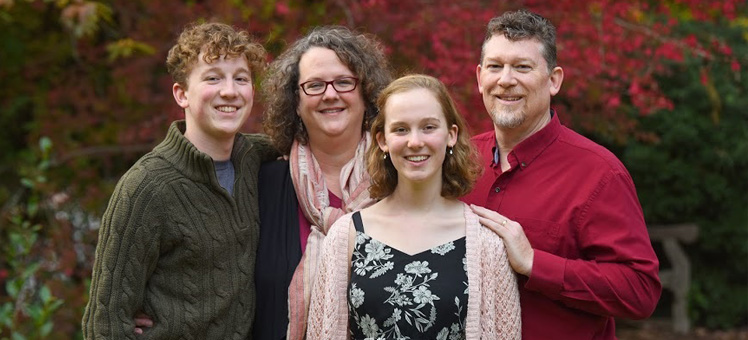Piedmont Healthcare issued the following announcement on Mar. 17.
As a wife, mother, associate professor and research lab director at the University of Georgia, Janet Frick understands the importance of a ‘to do list’, and in November 2019, completing her annual physical and scheduling her first screening colonoscopy were near the top of the list.
“I’m a pretty healthy person,” said Frick. “I had no concerning health issues at the time, I was just seeing my doctor for my annual physical, but I had recently turned 50 and knew it was recommended that I have a screening colonoscopy so I asked about scheduling one.”
The American Cancer Society updated its guidelines in 2018 and now recommends that individuals with an average risk of colorectal cancer begin screenings at age 45. Patients classified as higher risk may need to start screenings earlier or have be screened more often. Patients should speak with their doctor about their specific risks and which screening is right for them.
During the procedure, the physician removed a number of polyps, but noted that one polyp was too large to be removed during the colonoscopy. Frick was referred to Ashlee Kimbrell, M.D., a colon and rectal surgeon at Piedmont Athens Regional, for a follow up appointment.
“Even at this point, I wasn’t too concerned. I wasn’t really thinking that I could have colon cancer because I hadn’t had any symptoms,” remembers Frick. “It wasn’t until Dr. Kimbrell told me that the surgery would require me to stay in the hospital a couple of days that I truly understood how very serious this could be.”
On March 12, 2020, just at the world was shutting down to battle the first surge of COVID, Dr. Kimbrell laparoscopically removed 14 centimeters of Frick’s colon, including the four-centimeter sized polyp that had been too large to remove during the colonoscopy. Pathology confirmed that the polyp was malignant, but had been found early enough than the cancer had not spread. The surgery removed all the cancer and Frick did not need further treatment with chemotherapy or radiation.
“Not only did I not have symptoms, I was also busy, so I could have easily put off having my first screening colonoscopy,” said Frick. “If I had waited, the cancer could have spread, I could have developed troubling symptoms, and I may have had to undergo intense treatment. I feel so fortunate that my cancer was caught early.”
Patients are considered to be at increased or high risk for colorectal cancer if they have certain risk factors. Some of these factors include a strong family history of colorectal cancer or certain types of polyps, patients with a personal history of colorectal cancer or certain types of polyps, and patients with a history of inflammatory bowel disease such as ulcerative colitis or Crohn’s disease.
According to data from the American Cancer Society, colorectal cancer is a leading cause of cancer death for both men and women in the U.S. It is estimated that more than 150,000 colorectal cancers will be diagnosed and more than 52,000 colon cancer related deaths will occur in 2022. Regular screenings find colorectal polyps before they become malignant, or at very early cancer stages, and are removed before they spread to other areas of the body.
“Colonoscopies actually prevent cancer. If your gastroenterologist sees a polyp, it’s coming out and that polyp will not have the chance to develop into cancer,” explains Frick.
“Today, I’m using my story to try to raise awareness and encourage people to know their family history of polyps and of any cancers. I’m encouraging everyone age 45 and older, to talk to your doctor about which type of screening test is right for you, do the screening, and then cross it off of your to do list.”
For more information on colorectal services at Piedmont Athens Regional, click here.
Original source can be found here.

Source: Piedmont Healthcare



 Alerts Sign-up
Alerts Sign-up